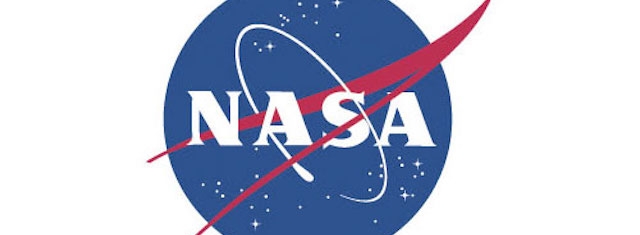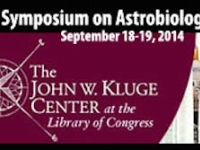Technology
Astrobiology Symposium to Explore the Emergence of Life and Kludge Center
Luis Campos and other scientists

NASA logo (Source: Courtesy NASA)
USPA NEWS -
The emergence of life, one of the most compelling topics in astrobiology, will be the focus of a daylong astrobiology symposium at the Library of Congress on Sept. 15. "The Emergence of Life: On the Earth, in the Lab and Elsewhere" will be hosted by Nathaniel Comfort, the current NASA/Library.
The emergence of life, one of the most compelling topics in astrobiology, will be the focus of a daylong astrobiology symposium at the Library of Congress on Sept. 15. "The Emergence of Life: On the Earth, in the Lab and Elsewhere" will be hosted by Nathaniel Comfort, the current NASA/Library of Congress Chair in Astrobiology at the Library´s John W. Kluge Center. The symposium will be held from 8:30 a.m. to 4:30 p.m. on Thursday, Sept. 15 in room 119 on the first floor of the Library´s Thomas Jefferson Building, 10 First St. S.E., Washington, D.C. The event is free and open to the public. The Kluge Center is presenting the symposium, as part of its joint NASA/Library of Congress Astrobiology Program. Scientists, scholars and journalists will participate in the panels, including:
Nsikan Akpan, science writer and producer, PBS News Hour
Steven Benner, synthetic biologist, Foundation for Applied Molecular Evolution
Jim Cleaves, chemist, Geophysical Laboratory, Carnegie Institute
Bill Mesler, independent science writer
Sophia Roosth, historian of science, Harvard University
Matt Schrenk, geomicrobiologist, Michigan State University
Carl Zimmer, award-winning science writer, New York Times
The event also will feature the incoming NASA/Library of Congress Chair in Astrobiology for 2016-2017, historian of science Luis Campos, and two previous chair holders: planetary scientist David Grinspoon; and historian and astronomer Steven Dick. For a schedule and further information, visit loc.gov/kluge/news/originslife.html.
Comfort is a historian of recent science and a professor at the Institute of the History of Medicine at The Johns Hopkins University. His books include "The Science of Human Perfection: How Genes Became the Heart of American Medicine" (2012) and "The Tangled Field: Barbara McClintock´s Search for the Patterns of Genetic Control" (2001).
The program is part of the Kluge Center´s ongoing Baruch S. Blumberg NASA/Library of Congress Astrobiology Program, which investigates the intersection of astrobiology research with humanistic and societal concerns. The astrobiology chair is a senior scholar position at the Kluge Center. The astrobiology chair is the result of collaboration between the NASA Astrobiology Program and the Library of Congress. Funded by NASA, and executed by the Kluge Center in consultation with the NASA Astrobiology Institute, the program promotes research at the intersection of the science of astrobiology and its humanistic and societal implications. A senior researcher is appointed annually to be in residence at the Kluge Center, to make use of the Library of Congress collections, as well as to convene related programs that ensure the subject of astrobiology´s role in culture and society receives considered treatment each year in Washington, D.C.------------------------------------------------------------------------------------------------------
Through a generous endowment from John W. Kluge, the Library of Congress established the Kluge Center in 2000 to bring together the world's best thinkers to stimulate and energize one another, to distill wisdom from the Library's rich resources, and to interact with policymakers in Washington.
Liability for this article lies with the author, who also holds the copyright. Editorial content from USPA may be quoted on other websites as long as the quote comprises no more than 5% of the entire text, is marked as such and the source is named (via hyperlink).







